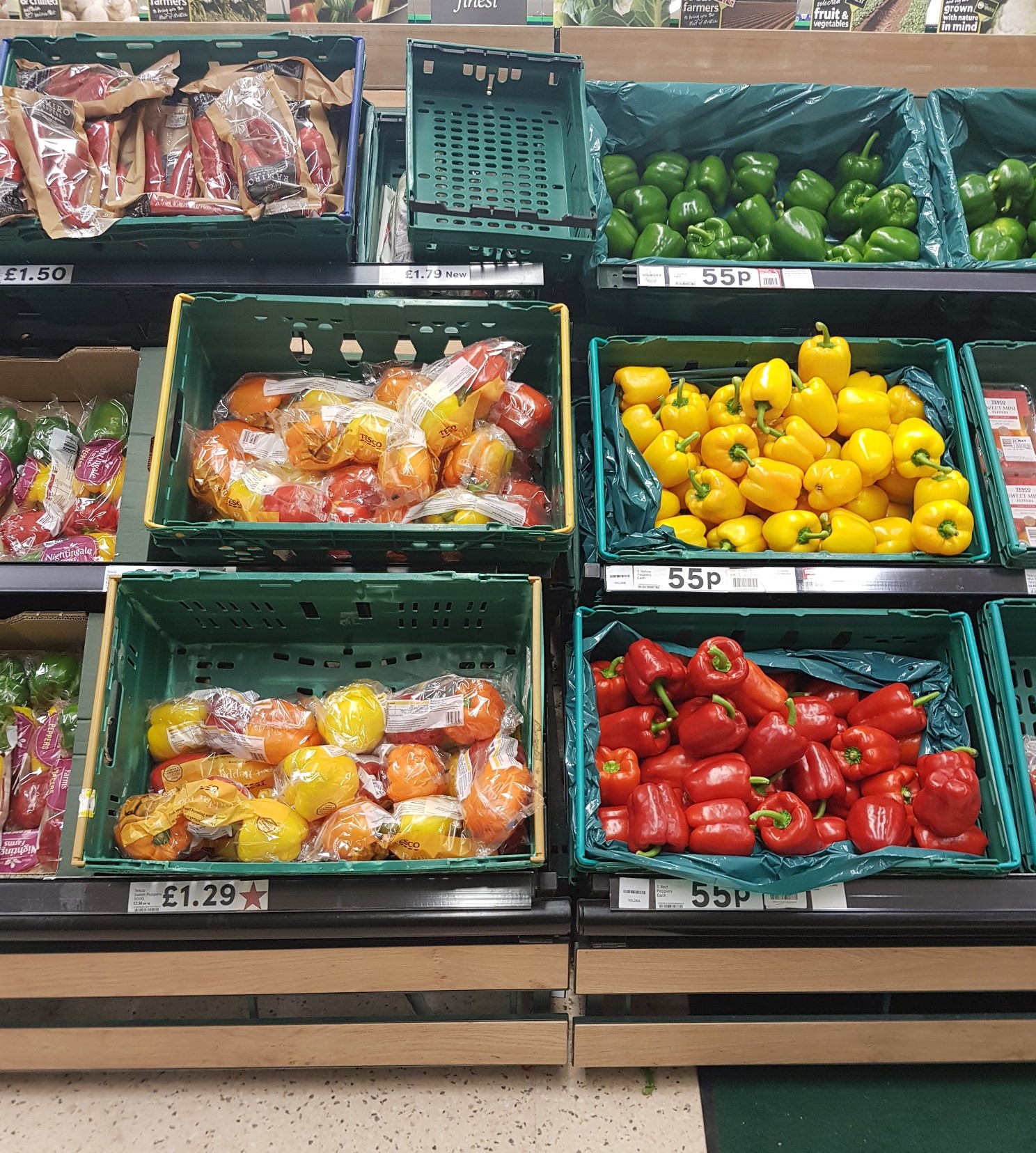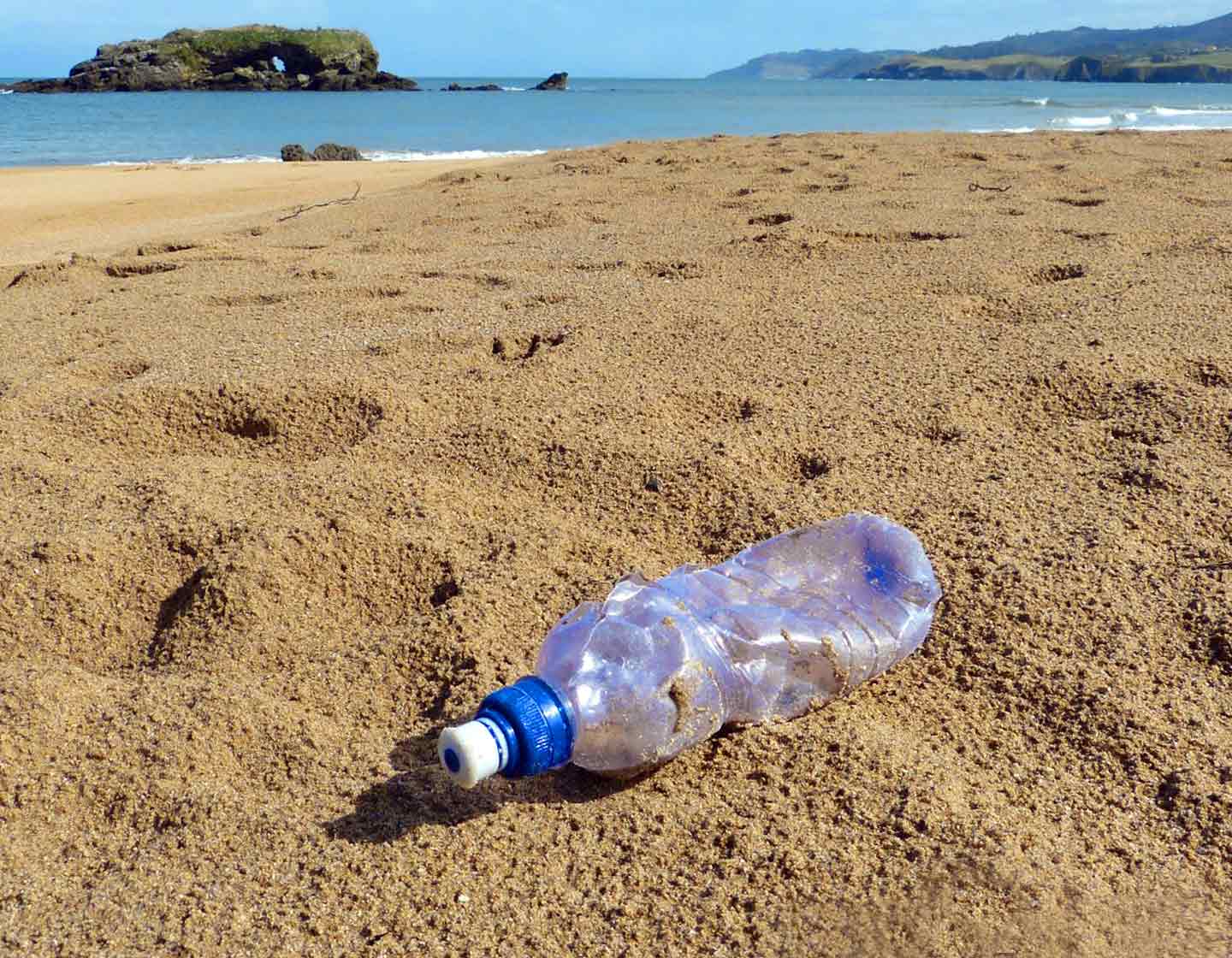Business pact targets 8 plastic items to be banned by end of 2020
A wide-ranging group of businesses has called for eight plastic items to be banned from sale by the end of next year.
UK Plastics Pact members are targeting single-use items, three of which (cotton buds, stirrers and straws) have already been set for a ban by the government next April.
The three single-use plastic items were finally banned in October after delays caused by the Covid-19 crisis. The UK Plastics Pact is continuing its campaign to drastically reduce the number of single-use plastic items being used and the debate on widening the single-use plastic ban continues in the EU and UK, with intense lobbying from all sides. What’s very clear though is that the single-use plastic items banned have not been missed, not least because of effective and sustainable alternative products.
WRAP, the resource efficiency body overseeing UK Plastics Pact, has published the list of eight “problematic or unnecessary” items that pact members are expected to remove by the end of 2020.
The eight items are:
- Cotton buds with plastic stems
- Plastic stirrers
- Plastic straws
- Disposable plastic cutlery
- All polystyrene packaging
- Oxo-degradables that break down to create microplastics
- PVC packaging
- Disposable plastic plates and bowls
The move by the pact chimes with the government focus and the European Union’s Single Use Plastic Directive.
The pact currently has 76 businesses as members, including major food and drink brands, supermarkets, manufacturers, retailers and plastic re-processors. In addition, 15 other organisations, including the British Retail Consortium and the Food and Drink Federation, have signed up to support the targets.
Among the members are companies collectively responsible for 85% of plastic packaging sold through supermarkets.
Pact members are committed to achieving four bold targets by 2025:
Target One – Take actions to eliminate problematic or unnecessary single-use packaging items through redesign, innovation or alternative (reuse) delivery models.
Target Two – 100% of plastic packaging to be reusable, recyclable or compostable.
Target Three – 70% of plastic packaging effectively recycled or composted.
Target Four – 30% average recycled content across all plastic packaging.
The pact has also targeted 19 other problem plastics and WRAP is urging members to their use where possible, consider reuse options, or ensure they are suitable for recycling.

The 19 items are:
- Plastic bags, including carrier bags and fresh produce bags
- Plastic film packaging e.g.crisps, fruit and vegetable film packaging
- Multi-layer non recyclable plastics e.g. pouches
- Multi-pack rings for canned drinks
- Multi-veg/fruit net bags e.g. for citrus and some vegetables
- Multi-buy bulk(secondary)wrapping e.g. multi pack crisps packaging and tins
- PVC cling film
- Bottle tops/caps
- Single-use drinks bottles
- Non-recyclable coloured plastics (including carbon black plastic e.g.some ready-meal trays, premium meat trays,some prepacked fish trays)
- Fruit and veg punnets/trays e.g.grape, tomato,mushroom etc.
- Internal plastic trays e.g. trays for premium biscuits
- Disposable plastic cups
- Fruit/veg stickers
- Plastic cup lids (from hot beverage cups)
- Plastic coffee pods
- Milk and salad dressing jiggers, single serving pots and sachets e.g. used in on-the-go salads, milk sticks, condiments, cosmetics and samples
- Tear off tamper evident strips on containers
- Teabags
WRAP’s criteria for problematic or unnecessary plastics are where use is avoidable or a re-usable alternative is available, when these cannot be recycled, where they hamper the recycling process, and where it commonly becomes litter and pollutes the environment.
Solving these problems will require collaboration and effort from all businesses and involve a range of actions such as considering re-fills, improved packaging design and optimising recycling. A key element is also ensuring that citizens are both motivated to recycle, and are clear on what can be recycled and how to recycle it.

Global warming warning
WRAP warns however, in seeking to overcome the problems with these plastics any unintended consequences that could lead to further global warming must be avoided.
The pact advises that successful removal will not only reduce the amount of plastic on the shelves but will also reduce demand for virgin plastic and avoid up to 1 tonne of Co2 per tonne that is recycled.
Peter Maddox, Director WRAP said:
“We know that more people than ever are concerned about the impact of plastics. The fundamental way industry can support this public desire is by addressing the issues that lead to plastic packaging being problematic. So for every item of packaging we need to consider whether plastic is the right material choice, or indeed if packaging is required at all.
“In many cases, plastic may be the best material choice from an environmental perspective. In these cases, we need to ensure that the plastic can be and is recycled. The items listed today are priorities for UK Plastics Pact members, and the onus is on those members to implement changes, urgently.”
Friends of the Earth welcomed the pact’s initiative but asked for much more to be done. Their ten top tips to reduce plastic pollution:
- Don’t buy fruit or veg in plastic film
- Opt for fruit and veg without plastic coverings.
- Look for organic box deliveries
- Buy from your local farmers’ market.
- Use soap nuts for your washing
- Choose a bamboo toothbrush
- Buy toothpaste in a jar instead of a plastic tube
- Choose beeswax food wraps instead of plastic film wrap
- Buy a reusable coffee cup
- Switch to packaging-free soap and shampoo bars
Friends of the Earth said:
“Legislation to cut down on pointless plastic is good to see but these three items are just a fraction of the single-use plastic nasties that are used for a tiny amount of time before potentially polluting the natural environment for centuries to come.
“Ultimately, we need producers to take responsibility for the plastic pollution caused by all their products; whether it’s bags, balloons, packets, containers or otherwise.
“This is why we’re campaigning for legislation to cut back on pointless plastic across the board.”
Pact members are committed to achieving four bold targets by 2025:
Target One
Take actions to eliminate problematic or unnecessary single-use packaging items through redesign, innovation or alternative (reuse) delivery models.
Target Two
100% of plastic packaging to be reusable, recyclable or compostable.
Target Three
70% of plastic packaging effectively recycled or composted.
Target Four
30% average recycled content across all plastic packaging.
The pact has also targeted 19 other problem plastics and WRAP is urging members to reduce their use where possible, consider reuse options, or ensure they are suitable for recycling.
The 19 items are:
- Plastic bags, including carrier bags and fresh produce bags
- Plastic film packaging e.g.crisps, fruit and vegetable film packaging
- Multi-layer non recyclable plastics e.g. pouches
- Multi-pack rings for canned drinks
- Multi-veg/fruit net bags e.g. for citrus and some vegetables
- Multi-buy bulk(secondary)wrapping e.g. multi pack crisps packaging and tins
- PVC cling film
- Bottle tops/caps
- Tear off tamper evident strips on containers
- Teabags
- Single-use drinks bottles
- Non-recyclable coloured plastics (including carbon black plastic e.g.some ready-meal trays, premium meat trays,some prepacked fish trays)
- Fruit and veg punnets/trays e.g.grape, tomato,mushroom etc.
- Internal plastic trays e.g. trays for premium biscuits
- Disposable plastic cups
- Fruit/veg stickers
- Plastic cup lids (from hot beverage cups)
- Plastic coffee pods
- Milk and salad dressing jiggers, single serving pots and sachets e.g. used in on-the-go salads, milk sticks, condiments, cosmetics and samples
WRAP’s criteria for problematic or unnecessary plastics are where use is avoidable or a re-usable alternative is available, when these cannot be recycled, where they hamper the recycling process, and where it commonly becomes litter and pollutes the environment.
Solving these problems will require collaboration and effort from all businesses and involve a range of actions such as considering re-fills, improved packaging design and optimising recycling. A key element is also ensuring that citizens are both motivated to recycle, and are clear on what can be recycled and how to recycle it.
Global warming warning
WRAP warns however, in seeking to overcome the problems with these plastics any unintended consequences that could lead to further global warming must be avoided.
The pact advises that successful removal will not only reduce the amount of plastic on the shelves but will also reduce demand for virgin plastic and avoid up to 1 tonne of Co2 per tonne that is recycled.
Peter Maddox, Director WRAP said:
“We know that more people than ever are concerned about the impact of plastics. The fundamental way industry can support this public desire is by addressing the issues that lead to plastic packaging being problematic. So for every item of packaging we need to consider whether plastic is the right material choice, or indeed if packaging is required at all.
“In many cases, plastic may be the best material choice from an environmental perspective. In these cases, we need to ensure that the plastic can be and is recycled. The items listed today are priorities for UK Plastics Pact members, and the onus is on those members to implement changes, urgently.”
Friends of the Earth welcomed the pact’s initiative but asked for much more to be done.
Top 10 tips to reduce plastic pollution:
- Don’t buy fruit or veg in plastic film
- Opt for fruit and veg without plastic coverings.
- Look for organic box deliveries
- Buy from your local farmers’ market.
- Use soap nuts for your washing
- Choose a bamboo toothbrush
- Buy toothpaste in a jar instead of a plastic tube
- Choose beeswax food wraps instead of plastic film wrap
- Buy a reusable coffee cup
- Switch to packaging-free soap and shampoo bars
Friends of the Earth said:
“Legislation to cut down on pointless plastic is good to see but these three items are just a fraction of the single-use plastic nasties that are used for a tiny amount of time before potentially polluting the natural environment for centuries to come.
“Ultimately, we need producers to take responsibility for the plastic pollution caused by all their products; whether it’s bags, balloons, packets, containers or otherwise.
“This is why we’re campaigning for legislation to cut back on pointless plastic across the board.”
Want more articles like this?
Subscribe to Learn&Save